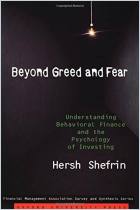Join getAbstract to access the summary!

Join getAbstract to access the summary!
David Tuckett
Minding the Markets
An Emotional Finance View of Financial Instability
Palgrave Macmillan, 2011
What's inside?
Current economic theory creates a crisis cycle by failing to consider human nature.
Recommendation
Psychoanalysis professor and economist David Tuckett advances brave theories about the dangerous way financial theory fails to consider human emotion and behavior. He explains that if market analysts continue to ignore this missing link, they will invite a repeat of the 2008 financial crisis. Tuckett seems genuinely mystified that financial theory has yet to account for how humans really make decisions. At times, the book suffers from the lack of an attentive editor. The author occasionally gets rolling on a deep point and wanders off into an academic swamp. Overlook these minor rough spots and you’ll learn a lot. This analysis is critical to understanding mob mentality in investing, even if Tuckett’s explanations aren’t always so smooth. Praise to him anyhow for his inspection of the holes in current financial theory and for his forensic analysis of the 2008 crisis. He presents viable ideas about how economic theory must change. getAbstract recommends his work to financial professionals with a solid grasp of economic theory, to market investors and to psych students with an interest in finance. All readers need a measure of patience, since the book is a deep dive into the finer points of economics and psychology.
Summary
About the Author
David Tuckett, a fellow of the Institute of Psychoanalysis in London, is an economist, a prolific author and a professor at University College London.






















Comment on this summary